We were lucky to catch up with Kate Beever recently and have shared our conversation below.
Kate, thank you so much for joining us today. Let’s jump right into something we’re really interested in hearing about from you – being the only one in the room. So many of us find ourselves as the only woman in the room, the only immigrant or the only artist in the room, etc. Can you talk to us about how you have learned to be effective and successful in situations where you are the only one in the room like you?
I chose to become a drummer during an era when there were not many female instrumentalists gigging. Almost every band I was in from junior high school through adulthood has been made up of male musicians.
When I was drumming with all-male bands, the stupid comments from other people and assumptions they would make were annoying. People attending gigs would think I was someone’s girlfriend, offer to carry things for me, comment on my looks, etc. But what was really annoying was that the default was that my opinions weren’t taken seriously. Male musicians always assumed their perspectives should carry the most weight. So creative decisions were based on a limited and narrow viewpoint. I always found it interesting that they only listened to and liked famous rock stars who were men, and they didn’t seem to have any concept of who else might have been making music and was never heard. I would feel so angry when a guy would ask what I thought about some Jimi Hendrix b-side and I’d say, oh, I don’t know it, and they’d be like “oh my god you don’t KNOW it?” I let this get to me when I was younger and I started to feel less and less confident. At some point, I realized that just because someone is loud about what they’re into doesn’t mean it’s better than anyone else. And just because they understand something, doesn’t mean that’s the only thing worth understanding.
The experience of constantly having to prove myself in male-dominated music spaces shaped how I navigate being the only person in my field at work. In both settings, I’ve had to contend with assumptions, pushback, and the challenge of making myself heard.
Now, in my role at my workplace, I’m the only person there doing my job. I’m a music therapist in a hospital setting, so my job is to work with people with brain injuries, cancer, depression, and other illnesses meet their health goals using music as a tool. There is plenty of science and research behind what I’m doing, and I have extensive training and experience. But many healthcare workers, especially in my rural state, don’t know about integrative services and don’t understand the benefits of things like arts therapies. So a lot of the referrals I got for the first few years were not optimal- “hey, can you sing happy birthday to this patient?” “This patient loves music, they’d be perfect for you to see!”
The comments I received pushing my instrument cart through the hallways at the hospital weren’t as creepy as what I heard lugging my drums into a gig, but they often felt equally frustrating. And tiring, because it was on me to educate people about my role. Some music therapists turn every frustration into a ‘moment of advocacy’ – so if they hear “here comes the musician, must be a concert!’ They’ll say ‘Oh, there’s no concert today, I’m going to work with someone recovering from a stroke and we’re going to use rhythm to help them walk more steadily, using a technique called entrainment, which helps synchronize the auditory and motor systems.’ This kind of advocacy is fine, but I don’t find that it helps connect with anyone – entering a conversation with ‘well, actually’ reminds me too much of former bandmates to want to engage in that way.
The other piece of this has been adjusting my own responses by empathizing with the people who make these silly comments. They don’t mean to belittle the study of music therapy, it’s likely just new to them. Reflecting on my experiences as a younger musician made me realize the same- it was unusual to see a woman behind a drumset during that time and place. It was likely interesting to people, so they attempted to learn more by talking to me, and maybe just didn’t always know what to say. So in the workplace now, I recognize that when someone says “here comes the musician!” They are often genuinely excited to see something so different in a hospital and they aren’t expecting to be educated rather than connected with. I’ve developed my own way of using humor—if I notice people staring as I move my instruments to another floor, I’ll just quietly say, “elevator music.” to break the ice. Or if someone comments, I’ll ask them if they play any instruments. I just don’t bother with an explanation of the current research right out of the gate, because they will walk away and forget. Making people feel heard and connected, or making people laugh, will hopefully stick with them. Maybe they’ll have a better day because of it, and later that night, they might think, ‘Huh, her badge said Music Therapy—what is that?’ And learn for themselves.
And also, it frankly doesn’t matter if every person understands what I do. I used to think it really mattered, because I care so much about the field and want it to grow. But releasing that responsibility has been a great tool – I focus on doing great work, and advocating when necessary. The medical staff who refer patients to me have a good understanding of what music can be helpful for, and that’s what matters. It also doesn’t matter if someone is steadfast in their misunderstanding of my role, or if they think it’s a silly job. I used to want to advocate partially because I wanted to be taken seriously- it felt important for people to know how scientific this work is. But if some people think it’s silly, that’s an opinion. And if there’s anything I learned from being around guys who thought male rock stars from the 1960s were the be-all-end-all of good music, it’s that having a strong opinion doesn’t mean it’s correct.
When I do start to feel burnt out by being the only person with my job in such a huge workplace, I try to find community in other ways. I’ve joined a few affinity groups at work so I can connect with coworkers that I have other things in common with. I also try to find time to connect with music therapists who work in other settings, although I don’t know any who work in other hospitals in the same way that I do. I call my best friend from grad school who is also a music therapist, and we talk for hours a few times a year about how crazy our lives are. I also go to supervision to talk about my work with someone who is experienced in this kind of work. That gives me additional confidence that I can carry with me and make the best clinical decisions for my clients as well as speak up for myself when needed.
Distilling down what matters to me, what my values are, has made it easier to navigate some of the landmines of working in a place where you are the only. It makes it easier to decide what’s worth getting worked up about or worth saying something about.
When I feel exhausted by constantly explaining my role, I remind myself that I don’t need to convince everyone—just do my job well. Humor helps lighten the load, but ultimately, working in palliative care reminds me that life is short. People will always have opinions, but the only thing that really matters is the work I do and the people I help.
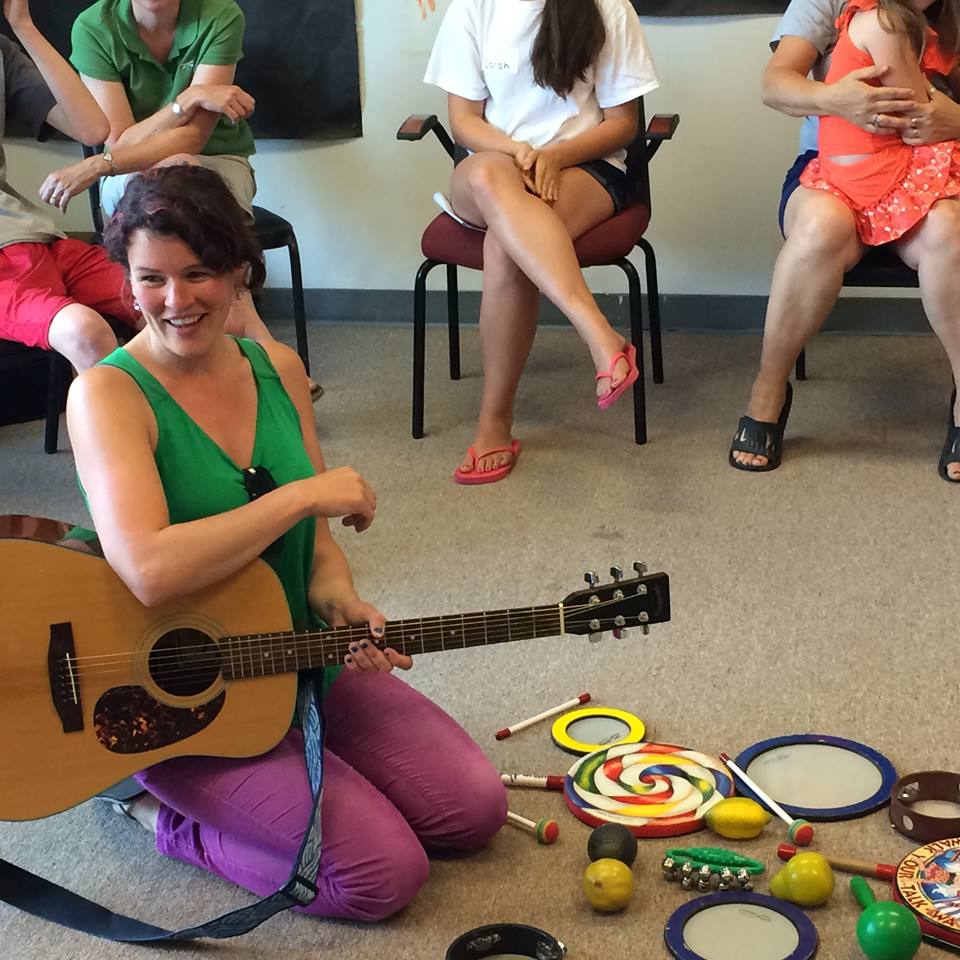
Let’s take a small detour – maybe you can share a bit about yourself before we dive back into some of the other questions we had for you?
I am a small business owner, with a music therapy practice based in Maine. I’ve been doing this since 2011 and keep a busy schedule of individual clients, hospital-based work, and teaching. I have a side business with an art therapist, called Expressive Wellness, through which we train healthcare professionals to use the arts to help their clients and develop self-care tools. I’ve loved this work because it has taken me into so many settings- group homes, prisons, clinics, cancer support centers, schools. Every day is different, and I get to support changes throughout the lifespan. Witnessing patients speak for the first time after a TBI, write a song for their NICU baby, or reach out and play a drum after an injury= all because of music- is powerful.
I balance my work with continuing to play music for myself- I’m a drummer in a swing band right now, but I’ve played in rock bands, orchestras, and many other settings. I also spend a lot of time participating in outdoor activities like paddling, hiking, and boating, and attend French meet-ups just for fun.

If you had to pick three qualities that are most important to develop, which three would you say matter most?
1 Flexibility. This is a skill set that I developed as a musician, learning to improvise, but it’s helpful in all settings! Learn the theatre improv technique of “yes, and” so that you can go with the flow. I spend a lot of time writing out my own business goals, and have a clear picture of what I want in life, but when other things come up, I adjust accordingly. If opportunities weren’t part of my plan, but they fit my values, I’ll often take them as a ‘brief detour’ and sometimes it turns out they were just a shortcut to meeting the bigger goal.
2 Organization. If you choose to be self-employed (or are forced to be, as in my case there weren’t any jobs so I had to create one), you’ll need to juggle a lot- direct client work, intakes and emails, financial planning and billing, marketing, cleaning your office, etc. This requires quite detailed calendaring. And my biggest recommendation? Be sure to mark space in your calendar for yourself. I’ll book out each month a few hours of “MEETING” – that way it’s full on my calendar, and I can’t schedule anything, but it’s not actually a meeting. It’s just free time.
3 Finding Joy. I think it’s important to find lightness so that you’re not overtaken by stress. I look for joy, and find in, in many small ways. Could be a great view while walking to work, could be a conversation with the bus driver, could be a 10 minute nap after a long work day, could be a beautiful piece at the art museum.
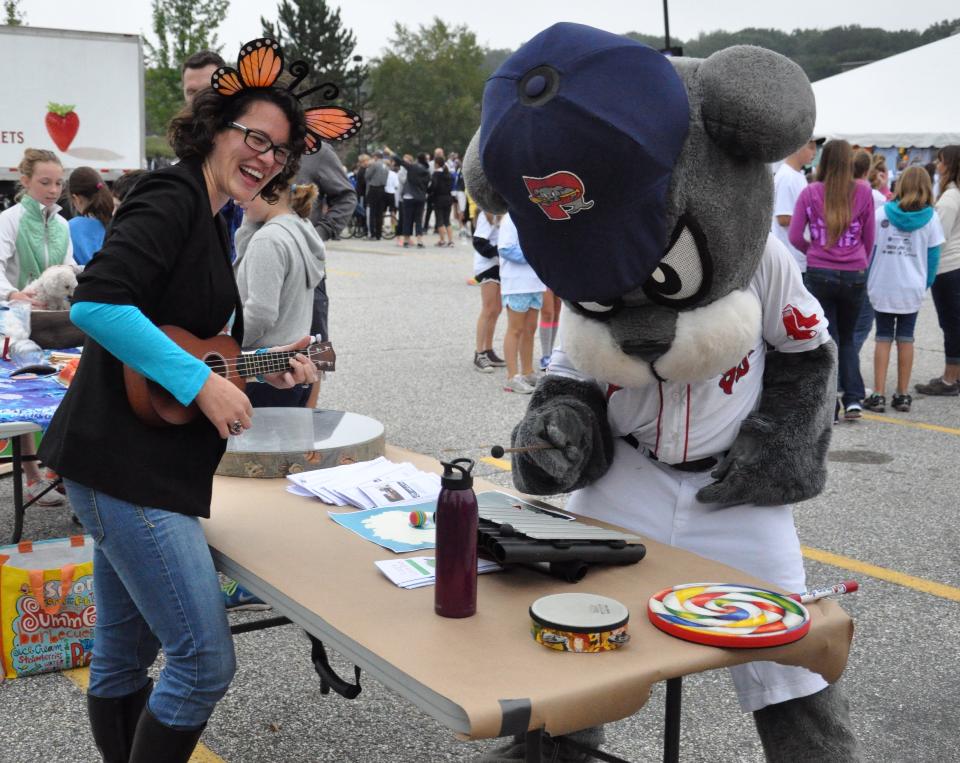
To close, maybe we can chat about your parents and what they did that was particularly impactful for you?
It wasn’t one thing that they did, but a way of being. They modeled so many useful traits: passion, engagement, hard work, grit, critical thinking, healthy disagreement, unconditional love, prudence, forgiveness, positivity, and creativity.
My parents were never discouraging, they’ve been supportive to my brother and I since we were born. In fifth grade when I decided I wanted to be an orchestra percussionist, they rented one of those snare drum/glockenspiel kits through the school. I used to ask them to listen to what I was learning, which entailed me playing a rhythm on the snare drum and then asking them to guess what song it was. When I decided I should major in music and subsequently move to NYC to study music therapy, they didn’t suggest a more reasonable degree. They felt it was perfectly reasonable to do what you love, and find out how to do it responsibly. They’d modeled that too- they both do work that they’re incredible at and seem to love, while also finding time to have fun and laugh. My parents are the strongest source of reason and inspiration that I carry within me.
Contact Info:
- Website: https://www.mainemusicandhealth.com
- Instagram: https://www.instagram.com/mainemusicandhealth/
- Linkedin: https://www.linkedin.com/in/katebeever/
- Youtube: https://www.youtube.com/@KateBeever
- Other: https://open.spotify.com/album/72QUWtmWgL9T0xW3y7FZeR?si=BARcahvmRJGu6yUiqw9xyg
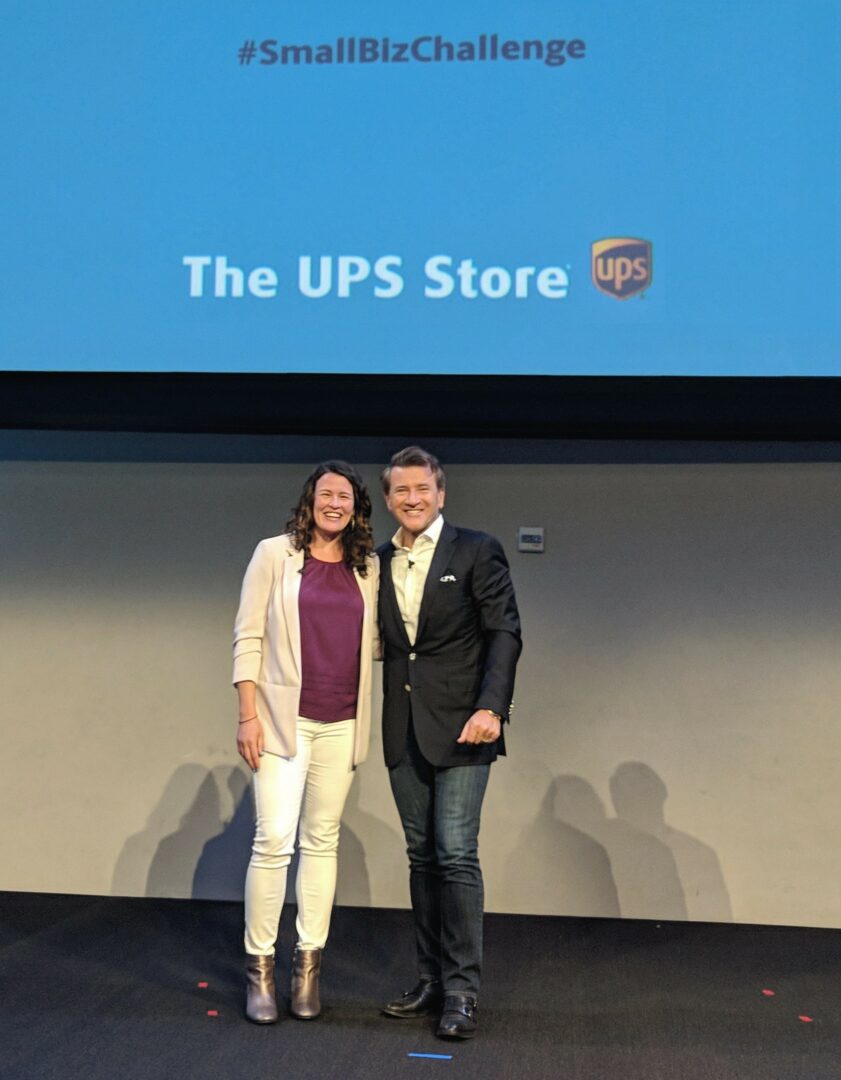
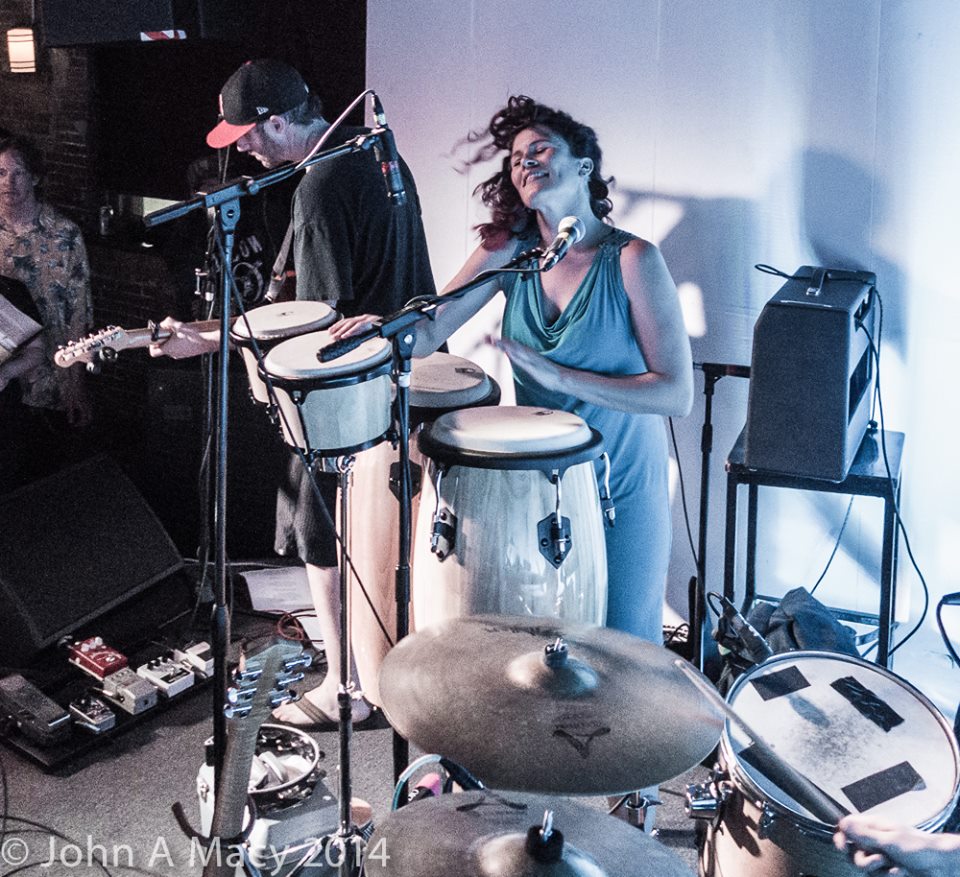

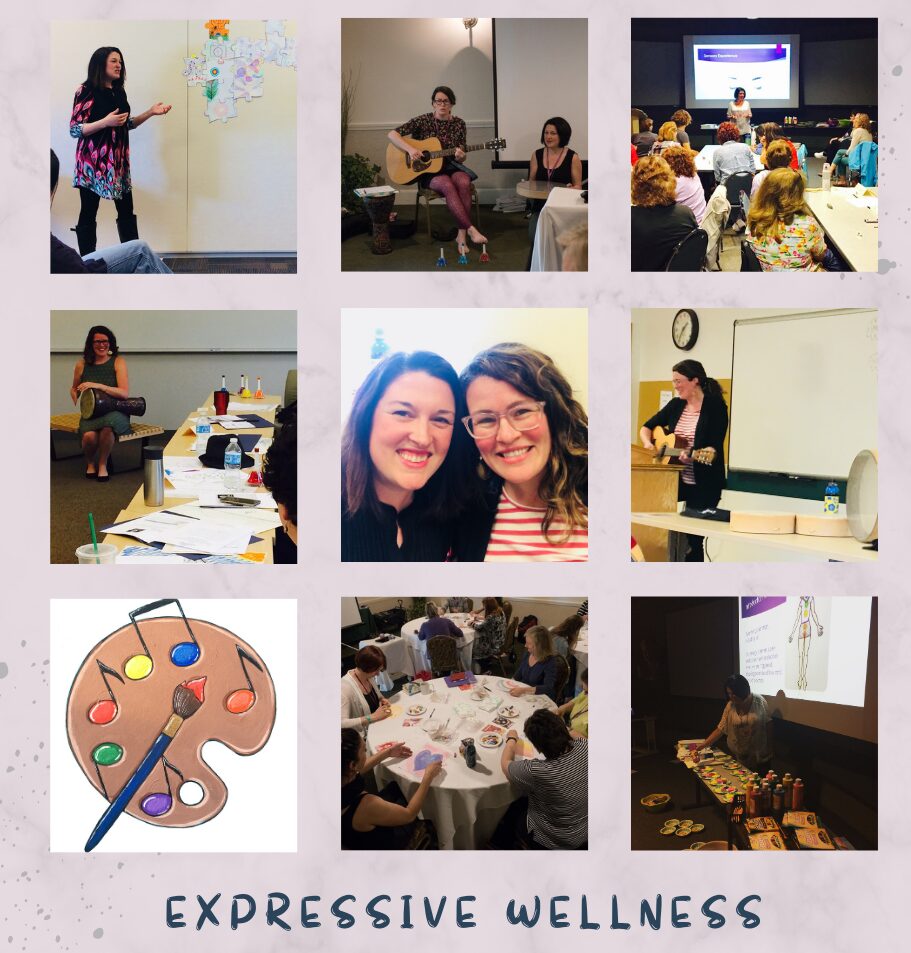
Image Credits
john macy
so if you or someone you know deserves recognition please let us know here.




